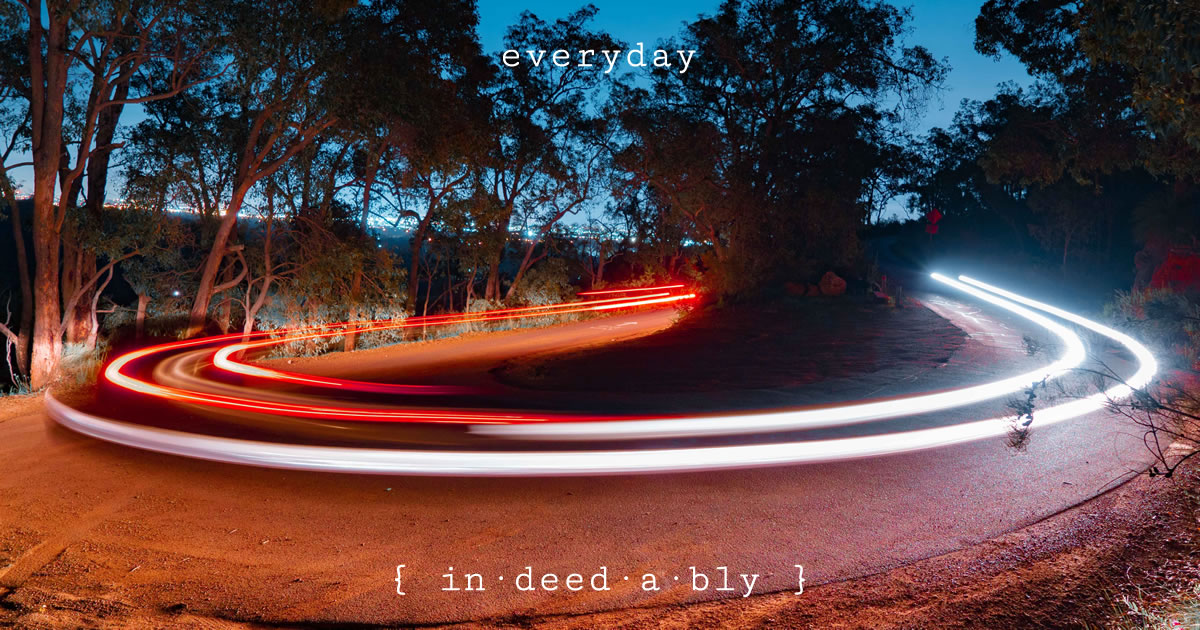Imagine having it all.
Childhood dreams realised.
That fantasy future life materialised into the tangible everyday.
I recently caught up with an old friend who has achieved just that. Outwardly the poster child for success. Internationally renowned in her field, she made it to the big leagues and won. Married with a couple of kids. A big house, complete with a swimming pool. An expensive electric car, signalling high status and low range. A dog and a cat.
But here is the thing: she was miserable.
Well, not miserable exactly, but far from happy and rarely content. Just like many of us.
It didn’t matter how many bucket list items she ticked, trophies and accolades collected, victory laps taken, or how social-media perfect things appeared. Life still happened.
Unpredictable.
Unfair.
Uncomfortable.
My friend would likely be a tad displeased with me for referring to her as “old”.
Truth be told, we are now both the same age that our parents had been, back in the olden days when we used to dream about our shining unwritten futures. At the same time, we wondered what could possibly have gone so wrong that our parents wound up living such unhappy lives in struggle town, a place where dreams went to die. Arguing. Fighting. Worrying. Grafting away at jobs they didn’t like. Slowly being ground down by the unfulfilling everyday. Leading lives of quiet desperation.
Many grey hairs later, we had some insight into the plight of our parents: we had become them.
Accumulating demands. Compounding commitments. Ever-growing dependencies. All relying upon us.
Each forming the bars of our own gilded cage. A prison of our own creation.
Children who had become teenagers.
Parents who had become frail or elderly, devolving into dependent children in all but name.
Generation long mortgages replacing short-term leases and infinite flexibility.
Travel, sleep-ins, and social lives replaced by chores, renovation projects, and Mum’s taxi.
Scratch beneath the surface, and my friend was barely hanging on. A marriage dead but not yet fallen over. One child expelled from expensive private school. The other plagued by learning disabilities. Dream house structurally unsound after a flood. Even the swimming pool leaked!
Outwardly, she was on top of the world. Had it all. But appearances can be deceiving.
My friend made one observation that struck a chord at the time, and has haunted me since.
“We spend the first 20 years of our lives dreaming of what life could be.
We spend the next 20 years attempting to force the world as it is into the world as we wish it to be.
Eventually, we stop banging our heads against the brick wall. Learn acceptance. Outgrow ambition. Trade hope for reality. Lower expectations. Stop swimming against the tide. Make the best of it.
Did we give up or just grow up?”
Throughout our conversation, she confessed to many of the inherent contradictions that middle-aged adults experience but rarely admit to.
Grateful for all her experiences. Successes. Her children most of all, challenging though they most certainly were.
Yet certain she would make different life choices if she had her time over again. Sliding Doors meets The Midnight Library.
Doing less of what she was “supposed” to do. More of what she wanted to do.
Living with less fear. More confidence.
Yielding less. Insisting more.
A different field of study.
Skipping the internship/graduate programme trap and early career false starts.
Owning her dream home earlier. Having kids much later. Avoiding getting married altogether.
Purging her life of sycophants, naysayers, parasites, and excess baggage without hesitation or mercy.
Learning that it is ok to say no, and to mean it.
She didn’t harbour regrets about the path taken or the hand life had dealt her. Yet despite achieving that rare feat of making her childhood dreams a reality, she discovered that life was lived in the everyday. Not in those rare and fleeting moments of victory. Glory. Or escape.
And her everyday contained the same drama and struggles as everyone else’s. Life happens.
I had watched my friend’s career flourish. Seen her put her game face on and conquer the world.
Use her very visible position to establish a strong personal brand.
One that subsequently allowed her to dictate her employment terms, and manage her profile.
It had been more than a decade since she graced her firm’s offices with her presence. As many of us learned to our benefit during the pandemic, for knowledge workers physical proximity simply isn’t required to get the job done. In many cases, it actively hinders performance. It had been her profile that protected her when the jobs of her colleagues all moved to lower-cost locales.
I had also witnessed her struggles. As her marriage unravelled. One child going feral. The other losing the genetic lottery, destined to never lead an independent life. Her parents first getting divorced then, separately, needing more care and attention than any person with a full-time job could ever hope to provide.
It was a lot. Overwhelming at times.
Hers was a cautionary tale of appearance: carefully manufactured image versus lived reality.
A fragile existence of constant prioritisation and endlessly spinning plates. Of competing interests and conflicting demands. Survivable only because she was willing to focus and sacrifice. She wouldn’t be easy to live with, nor was she in any danger of winning “mother of the year“.
Her life focussed around a career that she loved.
Excelling at a job that, by her own admission, did nothing that mattered. Which, if we are honest, is true of most jobs.
A career that would be forgotten five minutes after she was eventually pushed aside by a younger model, a management change, a political decision, or a technological leap. A certain outcome, the only unknown is the timing. Life happens.
Whether that constituted success is something I have my doubts about. But then success is subjective, defined by the beholder.
If that was what success looked like, then it wasn’t for me.
On the way home, I reflected on my own life. We had started in roughly the same place, at roughly the same time, and been dealt roughly the same cards in the game of life. My ride had been smoother than that of my friend. Experiencing neither the extreme highs of popularity and wealth, nor many of the extreme lows that she had endured.
All things considered, I felt pretty good about my lot in life. It could be better. But it could be a hell of a lot worse. Statement of fact rather than a humble brag.
That contrast between image versus reality reminded me of the opaque world of personal finance. Where creators present a carefully curated avatar. The protagonist in their stories.
Some elements true. Artistic license liberally applied. Plenty that is omitted.
To some degree, we are all guilty of this. It is human nature. Accentuate the good. Gloss over the bad. To our audiences. To our loved ones. Even, perhaps especially, to ourselves.
We sing when we are winning.
Projecting wisdom while rising markets make us appear far more competent than we really are.
Mistaking confidence for ability. Good fortune for reliable, sustainable, and repeatable performance.
Falling silent when things go sideways.
Rarely talking about blowing ourselves up. Trying to catch falling knives. Or throwing good money after bad while applying faulty mental accounting or wishful thinking.
Margin calls.
Mortgage stress, negative equity, and repossessions.
Investment losses. Stop losses triggered. Fire sales initiated, out of panic or necessity.
Unemployment.
Harsh realities that never feature in the financial junk food so prevalent in this space. The clickbait stories with titles like “ultimate guide to” or “7 easy steps”, that seek to gull the naïve and con the unwary.
I’d go as far as suggesting the audience’s bullshit alarm should start wailing the moment words like easy, expert, guru, or ultimate feature in any personal finance content they happen to be consuming. At which point, for their own financial wellbeing, they should immediately close what they are consuming, back away from the creator, and never return.
I admired The Investor’s honest self-assessment this week. It is brave to admit failings and uncertainty. To confess that age and experience do not automatically confer the confidence and certainty required to feel comfortable coping with random life happens events. This was noteworthy as much by its existence as its content, such humble admissions of fallibility are rarely seen.
By contrast, ask yourself where have the crypto evangelists who were HODLing “to the moon” gone?
No doubt chastened and poorer for their bruising recent experiences. Licking their wounds and wondering where the promises of instant riches all went wrong?
Hopefully, not so badly burned that they will abandon the world of investing entirely. Perhaps returning having learned some harsh lessons about patience, risk versus reward, and self-awareness.
Learning, as my friend had done, that decisions have consequences.
Learning we can only claim the wins if we are willing to own the losses. Two sides of the same coin. Both outcomes are due to either our individual foresight, skill, and abilities… or to luck and randomness. If we wish to learn and improve, we can’t pick and choose the narrative.
Learning that control is mostly an illusion.
Predictably, just as I was thinking I had it pretty good, life chose to immediately punch me in the face.
An unexpected terminal diagnosis for a loved one. One moment there was all the time in the world. The next, their unit of measurement for “long-term” shifted from decades to months.
A beautifully orchestrated scandal saw the outstanding school I had plotted and schemed to get my children into fall from its pedestal in spectacular fashion. Going from heavily oversubscribed to unable to give places away with a couple of well-placed media leaks and some deft influence peddling.
The battle lines shifted in my endless domestic property wars.
In quick succession hopes and dreams were altered.
Plans and predictions adjusted in the blink of an eye.
Attention seized.
Priorities reordered.
Some doors closing.
Others unexpectedly opening.
A natural outworking of the realisation that we can’t do everything, or be all things to all people, is making tough choices.
Then making our peace with them, and moving on.
Long ago, a former colleague who had been a career soldier before retiring to the comparatively sedate corporate Game of Thrones, observed that stress is when somebody is actively shooting at your head. Anything short of that is not worth losing sleep over.
A valuable lesson, though one best learned vicariously! A lesson that can be hard to remember at times, when life happens in its relentless yet ever-so-random way.
A curious realisation amidst all the uncertainty has been that my net worth and investments are no longer part of my identity.
That wouldn’t have been true a few years ago. A development milestone on my personal finance journey.
Both instantly discarded as priorities the moment my attention was required elsewhere, without second thought or regret.
Just like a job or a house, personal finance is simply a tool and enabler. But nothing more.
This adjustment was like setting aside of a hobby. Something that took me by surprise. When I’ve made similar prioritisation decisions in the past, it has been accompanied by a sense of reluctance or regret.
Whether that is a product of age, wisdom, rationalisation, or simply recognising “enough” is a question best left to the reader.
To answer my old friend’s question, of giving up or just growing up, I have concluded it is the latter.
One thing I have learned from her is that accomplishment is achieved by focusing on what is important, and tuning out the distractions. It can be hard to distinguish between the two in the everyday, but those random yet all too frequent life happens moments certainly help to sharpen the senses and focus the attention.




weenie 6 July 2022
There are probably more people like your friend than we realise – in the age of social media, it’s even easier to present a successful and happy front and that’s all people will see.
I guess you could say that my blog-self is a carefully manufactured image and whilst not 100% my lived reality, I’ll admit it’s pretty close.
There are things I share, my finances, my feelings which I don’t share with close friends or family so readers get to see a side of me that even my nearest and dearest don’t!
During days when I’m doubting my numbers, I’m drafting in my mind a blog post for the future with the title ‘I got it wrong about FIRE’ or something to that effect where my spreadsheets aren’t worth the pixels they’re written on. I feel like I owe it to my readers, who have supported me on my journey to know honestly whether it’s been a success or not, although how easy it would be to just say everything was fine because who would know?
{in·deed·a·bly} 6 July 2022 — Post author
Thanks weenie.
I think most of us are probably like ducks, calm and successful above the water, but furiously paddling below it.
You’re absolutely right about nobody knowing if we fluff, embellish, omit, or outright lie in our blogs. But I think that is ok, providing we treat the creative content we consume as works of fiction, and read them for entertainment value. If we wanted facts we’d be reading a textbook, or if we wanted fiction dressed up as fact we’d be reading the news media.
I also agree that writing an anonymous blog can be liberating. At time allowing a level of honesty that is difficult to match face to face.
Impersonal Finances 9 July 2022
It’s a strange dichotomy to be locked in on your personal finances but try and separate the net worth figure from your identity–one that I’ve had trouble with. It’s easy enough to say “don’t look at it,” but I’m checking this stuff every day almost on accident just because it’s something that I enjoy. Although, I do enjoy it less these last few months!
{in·deed·a·bly} 11 July 2022 — Post author
Thanks ImpersonalFinances.
Net worth is a fascinating barometer of attitudes and behaviours.
It starts as a lofty goal: “everything will be ok if only I was worth $n,000,000“.
Short term levers are pulled. Budgeting. Frugality. Minimalism. Looking for quick hacks, fast fixes, and the illusion of control. The problem is nobody ever saved their way to being rich, and there is a hard spending floor below which poverty and poor health reside.
Longer term levels are much harder. Maximising the marketable value of our time. Climbing the corporate ladder. Pay rises. Bonuses. Equity. A more certain outcome, but no quick wins. The problem is everyone has a ceiling on their competency, and a hard limit on the number of saleable hours in their day.
Side hustles are billed as the magic elixir. Trade time away from things that are important, family, friends, exercise, enjoyment. Invest it on something income generating. Short term pain, long term gain is the mantra. For a fortunate few, it even works.
In the meantime, net worth bounces around like a pinball in an arcade machine. Markets rise and fall. Interest rates shift. Inflation erodes purchasing power. All things outside our control. Does having more than yesterday constitute a win? What if the market falls, have I now “lost” money? On paper perhaps, but only if investments needed to be sold in the moment to support lifestyle costs.
Do I become a good person once I have $1,000,000?
Are all my problems solved when I get to $2,000,000?
Will my friends and family like me more when I’m worth $5,000,000?
One day we realise money is an enabler, and solves few problems on its own. The more we invest, the more our net worth figure becomes a random number. Moving up and down on a daily basis by more than a month’s earnings. Or a year’s.
Eventually, we conclude that we have “enough“. An entirely subjective figure. One that is a perpetually moving target. At that point much of our interest in net worth is lost. After a day or two we conclude we don’t feel any different, the power of magic numbers was an illusion. Predictably all our joys and problems remain, just as they did back at the start of the journey. It was never about the money!
Impersonal Finances 14 July 2022
Incredibly well said! I enjoyed Ben Carlson’s recent post about financial goalposts always moving:
The Accumulator 17 July 2022
I’m sorry to hear the bad news about your loved one, Indeedably. A similar thing has happened in my life. Sitting with someone who’s out of time is a salutary lesson in what counts.
{in·deed·a·bly} 17 July 2022 — Post author
Thanks TA. Sorry to hear about your loved one also. I hope you both got to say the things that needed to be said, and made your peace with the inevitable.
Being a palliative care is one of the toughest jobs I’ve had. It leaves scars, the experience continues to haunt long after the duties are concluded.
That instant transformation that we have all the time in the world to being on the clock must be a humbling, daunting, and terrifying one indeed.